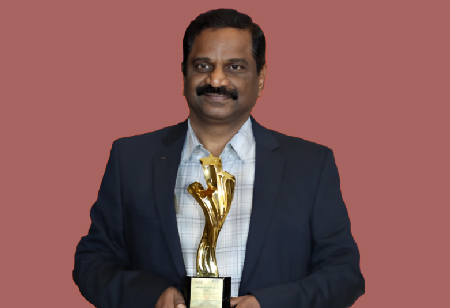
The Ingredients of a World-Class Organization


Sajeev Kale, Managing Director, ZChem Specialities, 0
India has always aspired to become a global leader in manufacturing. Strong local demand, growing exports, and a positive investment outlook all contribute to India's industrial ecosystem's continued expansion as global supply networks change and economies adapt to new realities. According to the FICCI Quarterly Survey on Manufacturing, 83 percent of companies report stable or higher production levels, indicating that India has continued a solid economic trajectory. Although India's manufacturing sector is still in its infancy, it does have one significant advantage: a youthful, urban population that is increasing and has more disposable cash to buy high-quality goods.
Providing an in-depth perspective on the prevailing manufacturing scenario in the country from a business leadership perspective is Sajeev Kale, Managing Director, ZChem Specialities. With vast professional experience in the chemical sector, Sajeev now heads his own manufacturing venture, ZChem Specialties, a company specializing in Liquid Penetrant Inspection (LPI) and Magnetic Particle Inspection (MPI). Below is an excerpt from the interview.
Over the past 40 years, what is the biggest challenge you have faced?
The biggest challenge I faced during my career was to inject the culture of excellence among the people who can enable the organizations to become world class and no less inferior to any one across the world. This is required largely for Indian companies if we aspire to be on the same page as developed economies.
Also Read: Sharath Kamal: The TT Legend Who Put India on the Global Map
What does Industry 4.0 mean on the shop floor? How would you define the transformation from a workforce standpoint?
Industry 4.0 for shop floors should generate data including relevant parameters like machine performance, time utilization,standard deviation, online quality
checks, etc. This data must be communicated, analyzed, and used for corrective actions to minimizeerrors, maximize resource utilization, improve customer satisfaction, and reduce inefficiency costs. Manufacturers can make their shop floors smart, effective, and extremely productive by adopting these Industry 4.0 technologies and concepts, which will help them remain competitive in today's quickly changing market. Industry 4.0 also means less dependency on workforce, more automation, etc.
What are the latest leadership traits that the manufacturing industry demands?
The leadership traits I advise for the manufacturing industry fraternity are: firstly, constant communication across the organization on global competitiveness, delivering customer value, continual improvement. Organizations must foster a culture of creativity, efficiency, and customer-centricity by educating and involving their workforce. Secondly, be an example of the change you want to see in the organization. If you want to be a leader in your industry, you should practice what you preach. Finally, it is important to be current in technology adoption. Always stay on the lookout for new technology trends and be an active adopter of new technology interventions.
What are your thoughts on integrating GenZ into the manufacturing workforce?
It is challenging to have Gen Z in the current manufacturing arena as the aspirations and goals of the new workforce are different in today’s digital world. The managers of manufacturing function must be aware of this and must constantly redesign the shopfloor environment to attract the talent.
Also Read: How Razorpay's Co-Founders Are Running a Fintech Revolution
How do you perceive the future of the manufacturing industry in India? What are the opportunities and challenges that you foresee?
The manufacturing industry in India is perfectly poised for excellent growth. Globally, we are seen to be able to deliver world-class, high-quality products at very competitive pricing in many segments. The only challenge I see is extending this culture (global competitiveness) to MSME organizations, as they play a vital role in our economy. India is a desirable location for international manufacturing ventures. Numerous luxury, car, and mobile phone firms, among others, have established or plan to establish their manufacturing facilities in the nation. IBEF estimates that by FY26, India's manufacturing industry might generate Rs. 87,57,000 crore ($ 1 trillion).
What are the latest leadership traits that the manufacturing industry demands?
The leadership traits I advise for the manufacturing industry fraternity are: firstly, constant communication across the organization on global competitiveness, delivering customer value, continual improvement. Organizations must foster a culture of creativity, efficiency, and customer-centricity by educating and involving their workforce. Secondly, be an example of the change you want to see in the organization. If you want to be a leader in your industry, you should practice what you preach. Finally, it is important to be current in technology adoption. Always stay on the lookout for new technology trends and be an active adopter of new technology interventions.
The only challenge I see is extending this culture (global competitiveness) to MSME organizations, as they play a vital role in our economy.
What are your thoughts on integrating GenZ into the manufacturing workforce?
It is challenging to have Gen Z in the current manufacturing arena as the aspirations and goals of the new workforce are different in today’s digital world. The managers of manufacturing function must be aware of this and must constantly redesign the shopfloor environment to attract the talent.
Also Read: How Razorpay's Co-Founders Are Running a Fintech Revolution
How do you perceive the future of the manufacturing industry in India? What are the opportunities and challenges that you foresee?
The manufacturing industry in India is perfectly poised for excellent growth. Globally, we are seen to be able to deliver world-class, high-quality products at very competitive pricing in many segments. The only challenge I see is extending this culture (global competitiveness) to MSME organizations, as they play a vital role in our economy. India is a desirable location for international manufacturing ventures. Numerous luxury, car, and mobile phone firms, among others, have established or plan to establish their manufacturing facilities in the nation. IBEF estimates that by FY26, India's manufacturing industry might generate Rs. 87,57,000 crore ($ 1 trillion).